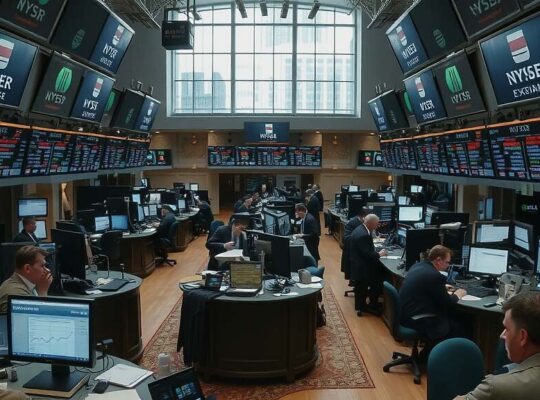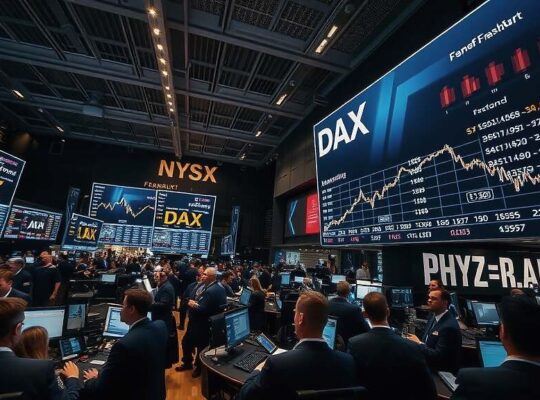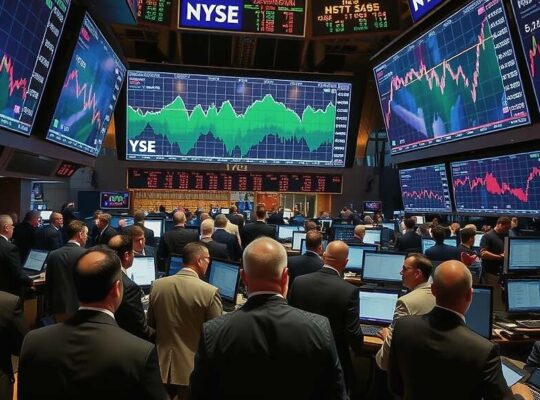The German stock market experienced a modest increase on Tuesday, with the DAX index closing at 24,330 points – a 0.3% gain compared to the previous day’s close. The session’s trajectory was marked by volatility, rebounding from an initial slight dip in the morning and oscillating throughout the day before ultimately concluding with a late-day rally.
Market analysts attribute this fluctuating performance to a stalemate between optimistic and pessimistic market sentiment. Andreas Lipkow, a leading market analyst, characterized the day’s trading as reflective of this “patt-situation” noting the inability of either bullish or bearish forces to establish dominance. He highlighted a discernible caution amongst investors targeting traditional cyclical industries and sectors, while emphasizing the continued high demand for companies within the semiconductor sector.
Shares of MTU and Infineon led the upward trend until just before the market close, demonstrating the persistent investor appetite for technology and specialized industrial components. Conversely, Siemens Energy shares lagged, reflecting ongoing concerns around the company’s performance and wider challenges within the energy sector. This divergence underscores a broader trend of selective investment, avoiding exposure to perceived riskier areas.
Adding to the complex economic picture, natural gas prices edged upwards, reaching €32 per megawatt-hour for November delivery – a 1% increase from the previous day. This price surge is likely to translate to consumer electricity prices of at least 8 to 10 cents per kilowatt-hour, inclusive of taxes and ancillary costs, should the current level persist, sparking renewed debate around energy affordability and the government’s strategies for mitigating price shocks.
However, a slight cooling in global energy markets was signaled by a decrease in the Brent oil price, which fell to $60.95 a barrel. This limited price relief offers little to offset the broader inflationary pressures still impacting the German economy.
The euro also weakened against the dollar, trading at $1.1609, further complicating the macroeconomic landscape. This depreciation reflects ongoing anxieties regarding the Eurozone’s economic growth relative to the United States, potentially exacerbating import costs and contributing to sustained inflationary conditions. The muted performance of the DAX, coupled with these fluctuations in energy prices and currency values, paints a picture of continued economic uncertainty and highlights the delicate balancing act facing policymakers as they navigate ongoing geopolitical tensions and domestic economic vulnerabilities.












